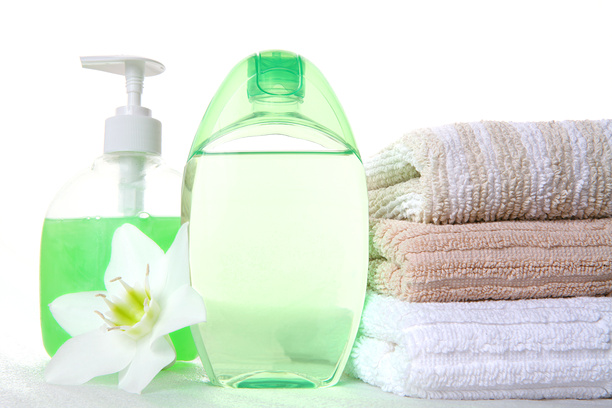Hygienic rules of personal hygiene are known to everyone since childhood, but daily devoting the morning and evening time to brush your teeth and washing the face, you should also remember the intimate hygiene of the genitals. This delicate habit should be instilled in children and adhere to all their lives to maintain health.
As well as for other organs, for the health and normal functioning of the intimate zones of any person, cleanliness is required. Compliance with some special rules of daily care will prevent diseases and eliminate the possible discomfort sensations of the genitals. This issue should take place in every family, both among children and adolescents, and among adults of both sexes.
The epithelium (leather) and mucous membranes of these organs are one of the most delicate zones in the human body. Therefore, daily hygiene should be carried out with extreme accuracy and thoroughness to avoid irritable or inflammatory processes. General rules for genital hygiene may slightly vary from gender and age.
Intimate hygiene rules
Consider the main aspects of daily hygiene for any age and regardless of gender:
- In the pool or when bathing in reservoirs, do not stay in wet clothes for a long time, it helps to reproduce bacteria.
- The water jet and the movements of your hands during washing should be directed strictly in front, and not vice versa, since the infection is possible.
- Depilation of intimate zones must also be carried out regularly at least once a month, since the hair can accumulate bacteria. Blaves of the razor should be disposable, shaving must be carried out on the pre -washed zones using a special shaving product without aromatic additives of the anti -allergenic composition. After the procedure, repeated washing is recommended.
- If there is no possibility of washing (in the road or at work), then use wet wipes. However, their constant use is not recommended to avoid irritation of the sexual zones.
- Intimate hygiene should be produced only with pure warm water using special products for intimate zones, and not soap, which disrupts the acidity of this environment and allows bacteria to multiply.
- The use of sprints should be carried out only if the treatment is also necessary and after prescribing a doctor. The device should be sterilely disinfected by a solution of alcohol before use, and the nozzle of the sprint pear should be individual.
- It is better to refuse at all or not to wear a narrow synthetic linen and too close trousers all day to prevent rubbing. Lingerie should be made of cotton, which will allow the skin to breathe.
- Washing the genitals must be carried out every time after sexual contacts to both partners.
- Do not direct a strong stream of water directly to the mucous zones in order to avoid the introduction of bacteria and burns of delicate areas.
- In no case do not use a washcloth or sponge for washing, they can damage the skin and mucous zones, as well as bring bacteria from the anal passage.
- Washing should be carried out twice a day, in the morning and evening.
- A towel for genital zones should be purely personal and separate from other zones and body. The material should be natural and soft, and its washing should be carried out at least once a week at a temperature of at least 60 degrees.
- After washing, water on the body must be wetted, not wiped, in order to avoid damage to delicate areas.
- It is recommended to wash the laundry of fecal masses or use wet wipes, and try not to touch the other zones in order to avoid infections with movements of toilet paper.
- Hands before the procedures of intimate zones should be clean.
- The change of linen should be daily, even if you glued the gasket and it is clean in appearance.
Intimate hygiene of women

The genitals of a woman should pay increased attention during hygiene procedures, because it is these organs that are responsible for the reproduction of the body. The internal cavity of the uterus should remain sterile, and the infection from the anus should be excluded. The mucus generated from the uterus and located at the entrance to the vagina protects the organs from bacteria, so you should not use ordinary soap.
Lactobacteria of the vagina with lactic acid prevent bacteria from the outside, so soap products with alkali content can reduce the content of beneficial bacteria and lead to the reproduction of microbes. The wrong vaginal medium can lead to dysbiosis (vaginosis or thrush) of female childbearing organs. Such inflammatory processes with neglect of hygiene rules can cause other more serious gynecological diseases.
Before and after sexual contact, both partners should carry out hygiene procedures of the genital organs, hands and mouth, if necessary. If the partner is not constant, then you should not neglect condoms to protect against unknown infections. Medical studies also prove that the long -term wearing of narrow synthetic linen and thong leads to the spread of bacteria from the anus to the female organs.
Also, women are not recommended to use gaskets daily if menstruation has not occurred. Although many manufacturers call their hygienic products daily, it is strictly forbidden to use every day. If you are concerned about abundant discharge, then you should seek consultation and treatment for a doctor, and the gaskets should be changed at least four times a day.
Female intimate hygiene during menstruation
During female monthly bleeding, the vagina does not protect the uterus with an acid medium, and it is at greater risk of bacteria, therefore, several important aspects of hygiene should be distinguished precisely on critical days:
- Choose gaskets with natural layers, and not with a synthetic net, so you will avoid an unpleasant pair effect.
- It is strictly forbidden to use tampons at night.
- Do not use hygiene products for menstruation, oversaturated with flavors and extracts, they can cause allergies and fungal diseases (thrush).
- Before the onset of critical days, it is better to carry out an intimate haircut or depilation to prevent bacteria in a risk zone with hair.
- If possible, refuse the use of tampons and change them at least in three hours.
- With each change in hygiene products, it is advisable to do laundering or use special wet wipes.
- For any bleeding, it is not recommended to take a bath, bathing in the pool, sea, reservoirs, and should also be abandoned in sexual contacts in order to avoid bacteria and further infection.
- The gaskets should be changed not only as they fill them with discharge, and not less than five times a day.
- Hands when changing hygienic gaskets and tampons should be clean.
Intimate hygiene during pregnancy
During pregnancy, women should also pay special attention to the aquatic hygiene of intimate zones and regular linen. There are some features for hygiene for pregnant women:
- if fungal infections were bothered before pregnancy, then you need to consult a gynecologist regarding the choice of compounds for hygiene with a high content of lactic acid;
- during pregnancy, you should completely refuse to take baths;
- you should abandon the use of gaskets that can cause infection of the accumulation of bacteria and irritation, just change the laundry as necessary.
Intimate hygiene of girls
Prior to the onset of puberty in girls and adolescents, hygiene of intimate zones should be especially careful and neat. The protective functions of the body at an early age are lower than that of an adult woman, so any infection accidentally brought by a child can cause serious chronic diseases in the future. Many gynecological diseases can occur asymptomatic for many years, and the result of infertility may also be a consequence.
From an early age, it is necessary to explain and instilled in advance and instill in girls and young girls the special importance of hygiene of the genital organs and wearing comfortable linen from natural tissues. In no case, the question of hygiene should not be a shameful topic in the family, and the problems and discomfort of the genital area should be discussed with the mother. At an early age, do not neglect the health of the child and make it a rule to regular visits to the gynecologist and the treatment of diseases in the early stages, and not in already neglected chronic forms.
Intimate hygiene of men
For men, all the basic general general rules of genitals hygiene hygiene are completely applicable. Washing organs should not be less than twice a day, and the change of linen daily. Male intimate hygiene has some features due to the structure of the genitals. Also, a man should take care of the health of his partner and perform hygiene procedures before and after sexual intercourse, and also not forget about condoms in case of accidental connections.
During water procedures, water should be warm, and alkaline soap is also better not to use with such hygiene. Men should wash the genitals with particular thoroughness, paying attention to the skin folds and the zones between them. It is bacteria in the skin folds of organs that can cause an unpleasant odor and even infectious diseases. The use of wet wipes or washing after feces of feces also occurs in the hygiene of men.
Intimate hygiene of boys
For children and male adolescents, it is also necessary to talk as early as possible about the hygiene of the genitals and explain to them the importance of this health procedure. Of course, it is best if this topic is affected by a father or older brother. However, a woman can also convey these rules to her child, because the topic concerns his health and self -confidence in the future.
In the transitional age of the child, pollutions should be prepared in advance. It is necessary to explain the cause of their occurrence and the normality of this phenomenon so that the child has no fear, as well as explain to hygiene after these discharge. Also, you should not postpone consultations of the urologist and, if possible, ask the doctor to explain to the child all the features of the transitional age.
Intimate hygiene products
During daily hygiene procedures, it is worth remembering that the use of soap foam with alkali content can lead to a violation of the acid balance of the healthy environment of the genital organs. Without the use of special compositions, it is precisely for hygiene of intimate zones that it is impossible to preserve a healthy microflora. For proper daily hygiene, it is necessary to use specially designed gels, soap and wet wipes that have anti -inflammatory and anti -allergenic properties.
The composition of any means for hygiene of intimate zones should have the following components:
- for healing, from itching and burning - chamomile;
- for softness and soothing - vitamin D;
- to maintain microflora - lactic acid;
- for moisturizing - Panthenol;
- for calming, from dryness and irritation - aloe;
- as an antiseptic - sage;
- against inflammation and redness - calendula.
Gel for intimate hygiene
Gels for washing the genital zones are a liquid soap composition without alkali content. They are usually produced in comfortable bottles with a dispenser, which regulates the right amount for use. The main composition of such gels includes plant components and antibacterial substances that help maintain healthy flora and prevent irritation.
It is also recommended for very sensitive skin to use mousses and foams. Such soap products are very convenient to use and are also sold with a dispenser. Before use, just shake the bubble and squeeze the foam mass onto the palm of your hand.

Soap for intimate hygiene
The soap for washing the genital organs should contain pH components of the acidic environment and antibacterial natural substances that protect the delicate zones from inflammation. Degtyar soap for intimate hygiene is used in the prevention and treatment of thrush, when the acidic environment is disturbed, but its constant use can overdose delicate skin of intimate zones. Any soap for sexual hygiene should be without artificial flavors and dyes.
Encellence for intimate hygiene
Napkins for the use of intimate zones in hygiene should not contain alcohol and non -natural components, and the structure itself should be pleasant for the skin. These napkins are not recommended to be used constantly, but if you are on the road or at work, then this tool is very convenient. Always have a pack of special napkins for intimate zones.
Napkins will eliminate the smell and bacteria at any time and anywhere. You can also use special deodorizing sprays to eliminate an unpleasant odor. They can be used after the shower and on clean linen, but only if there are indications for this.
Intimate creams
Such funds are produced specifically with a sedative effect and prevent irritation. It is recommended to use such funds before and after swimming in public places. Also, many women use softening agents such as a lubricant during sexual intercourse.
Video about intimate hygiene
Great affordable video material with the rules of hygiene of the sex zones that can be shown to children:













Comments
a couple of years ago, there was no side of metrogils from the same problem, there were no side effects ...
I’m not a fan of peeling at all, it saves from acne of metrogil, it also smoothes it ...
Great article! ...
I take the second course of the Capsules Climafite 911. The tides went very quickly. It became calmer, irritability went away and I sleep well ...
i also noticed - it is worth nervous, everything immediately affects the face. Therefore, I try to avoid conflicts and unpleasant people. Of the creams, I like Miaflow from wrinkles - smoothes not only small wrinkles ...